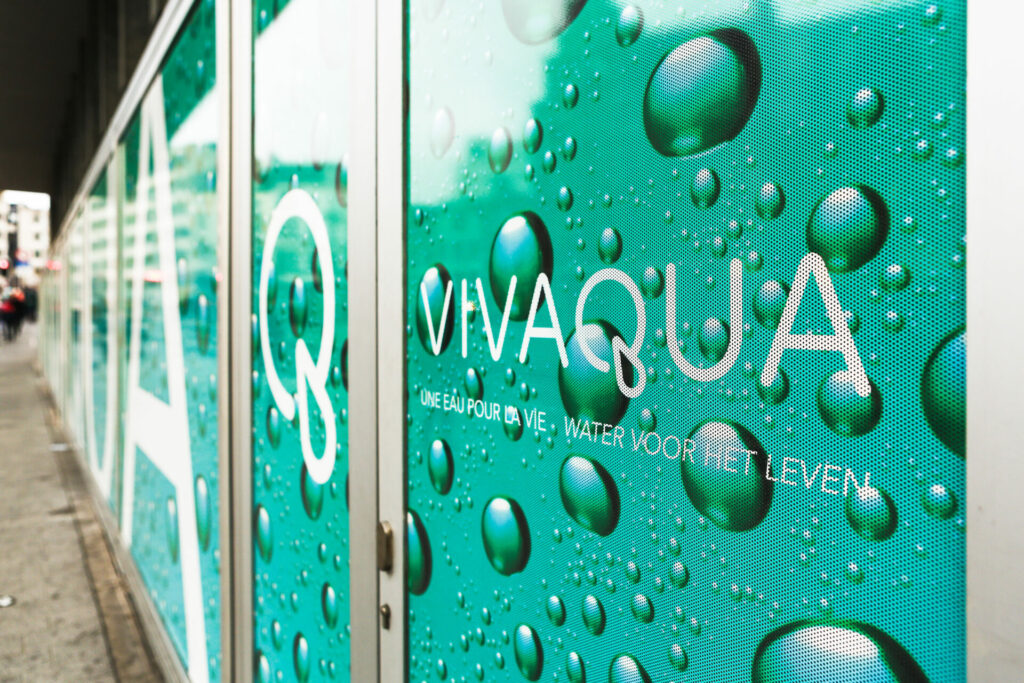Public water company Vivaqua's debt may reach €1.14 billion by 2024, warns CEO Laurence Bovy.
Vivaqua supplies 2.25 million households in the Brussels-Capital Region with drinking water and oversees wastewater management and flood prevention.
Its CEO has revealed that the company's debt reached €1.03 billion at the end of 2022, and despite significant efforts made in 2023, including not replacing retiring staff and reducing urgent investments, the budget forecasts for 2024 indicate a deficit of €53 million.
Already-crippling debt has prevented Vivaqua from renovating 500km out of 2,000km of sewers in need of repair, 220km of which are in "very poor condition," Bovy told De Standaard.
"We can guarantee that water will continue to come from the tap, but renovating sewers is hardly possible," she said. "Last year we were forced to postpone a number of construction sites, which meant that only 14 kilometres of sewers were renovated."
According to Bovy, the risk of sinkholes increases every day, with serious consequences for safety. Almost every month, a section of road surface collapses somewhere in Brussels, he said. "We are at a pivotal moment. I cannot guarantee the continuity of our activities in the future. The debt is simply too high compared to revenues."
Crunching the numbers
The shortfall will require financing through borrowing – taking a projected inflation rate of 4% into account – skyrocketing interest rates and a hike in energy prices. Expenses for 2024 are estimated at approximately €418 million, whereas revenue should total around €365 million.
Over the last five years, despite high debt charges of €21 million last year at an average interest rate of 2.6% of the total, the debt burden trend is worryingly upward – €27 million and a 2.9% rate for the current year and €33 million with a 3% rate anticipated next year.
These figures take into account budgetary efforts made in 2023 to cut personnel costs and make temporary savings on investments as part of the multi-year water management plan. Nevertheless, an imbalance of €13 million necessitated further borrowing from banks.
In 2023, the main expenditure was on salaries and pension charges, accounting for a third of the total (€145 million, or 32%). The company also invested €101 million in various projects.
Bovy highlighted the necessity of 40% of Vivaqua's annual costs, including debt charges, the fee to Hydria for wastewater treatment, taxes on water collection in Wallonia (€54 million in 2023), depreciations from past investments and losses from irrecoverable debts.
The CEO is calling for the Brussels-Capital Region to step in, as Vivaqua is the only essential service in Brussels that does not receive an annual allocation – unlike education, healthcare, rubbish collection and public transport, which all receive money.
"Our only source of income is the sale of water. The time to change our financing has arrived. Soon we will no longer be able to borrow anything at all, and then the consequences will be incalculable," Bovy concluded.
Related News
- Vivaqua CEO raises alarming financial concerns in parliament address
- Rising tap water prices in Brussels are 'symptom of water sector crisis'
- PFAS pollution in tap water: Brussels open to new 'overly-cautious' measures
Vivaqua was recently embroiled in the PFAS pollution scandal, where higher levels of forever chemicals were found in the water network, even if the water remains safe to drink. "Water quality in Brussels already meets very high standards, but I intend to continue our efforts to reduce the presence of PFAS and other pollutants as much as possible," Brussels Environment Minister Alain Maron (Ecolo) said.
The minister is open to reinforcing safety measures in the water network to avoid elevated levels of PFAS 'forever' chemicals polluting the Brussels tap water.

